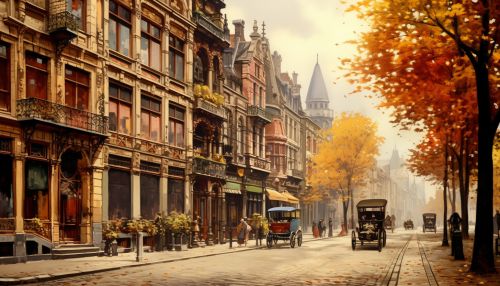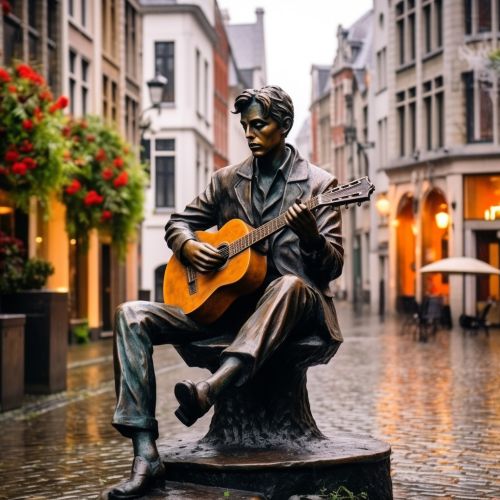Jacques Brel
Early Life
Jacques Romain Georges Brel was born on 8 April 1929 in Schaerbeek, a district of Brussels, Belgium. He was the eldest son of Romain Brel, a cardboard box manufacturer, and his wife, Paulette, a housewife. Brel's family was part of the French-speaking bourgeoisie, a social class that played a significant role in shaping his worldview and artistic expression.


Brel's early education was at the Institut Saint-Louis at rue du Marais, a Jesuit school in Brussels. His experience at this school, particularly the strict discipline and religious instruction, would later influence his songs and performances.
Career
Brel started his career in the early 1950s, performing in small cabarets and bars in Brussels. His first commercial recording, "Il y a," was released in 1953. However, it was not until 1957 that Brel gained significant recognition with his song "Quand on n'a que l'amour" (When We Only Have Love), which won him the prestigious Grand Prix du Disque for Best Song of the Year.
In the late 1950s and early 1960s, Brel became a prominent figure in the French chanson genre, a style of music characterized by its lyric-driven focus and its use of orchestration. His songs, such as "Ne me quitte pas" (Don't Leave Me), "La valse à mille temps" (The Waltz A Thousand Times), and "Amsterdam," are considered classics of the genre.
Brel's music was known for its poetic, often melancholic lyrics, and his passionate, theatrical performance style. His songs frequently addressed themes of love, death, and the human condition, often with a sense of irony and a deep empathy for the underprivileged and the marginalized.
Acting Career
In addition to his music career, Brel was also a successful actor. He made his acting debut in 1967 in the film "Les Risques du Métier" (The Risks of the Trade). His performance was well received, and he went on to act in several other films, including "Mon Oncle Benjamin" (My Uncle Benjamin) and "Le Far West" (The Far West), for which he received the Best Actor Award at the 1973 Cannes Film Festival.
Later Life and Death
In the late 1970s, Brel retired from performing due to health issues. He spent his final years living in the Marquesas Islands in French Polynesia. Brel died of lung cancer on 9 October 1978 at the age of 49. His body was flown back to Belgium, where he was buried in the cemetery of Atuona on the island of Hiva Oa.
Legacy
Brel's influence on the French chanson genre and on popular music in general is significant. His songs have been covered by a wide range of artists, from David Bowie to Céline Dion, and his theatrical performance style has influenced many performers in the music and theatre industries.


